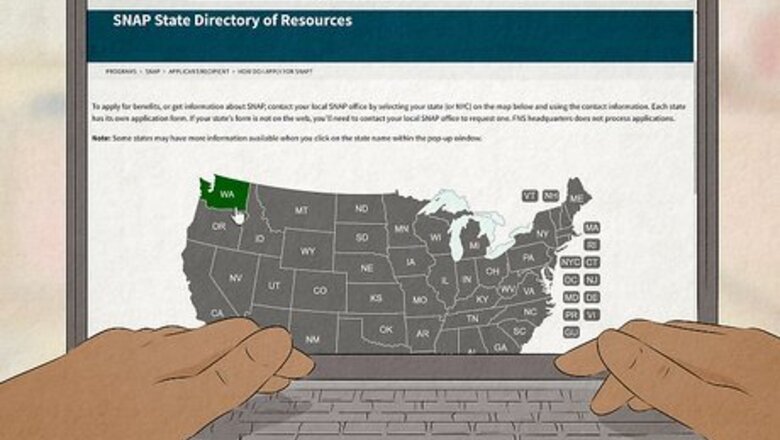
views
X
Research source
As such, you must use your state’s EBT portal to cancel your benefits, and every state’s process is different. In any case, we’ll walk you through how you can get to your state’s portal to try and cancel the benefits online. Remember, you can always do this over the phone by calling your local EBT office if you can’t figure out how to do it online!
Cancelling Your Benefits Online
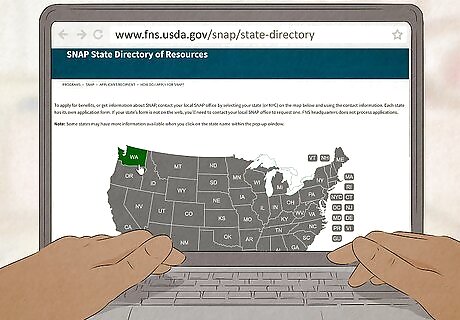
Visit the USDA directory if you don’t know where to log in. There is no universal online portal for SNAP benefits; you must use your state’s specific online system. If you haven’t used your state’s online EBT portal before, visit the USDA directory at https://www.fns.usda.gov/snap/state-directory. Click on your state and click the website link that pops up. If you just want to get this done quickly, call the number that pops up alongside the website URL. It’s faster to do this over the phone than online. Some states do not allow you to cancel your benefits online. Some require you to call, while others require you to mail a form to their office. There’s no way to know without going to your state’s portal, though.
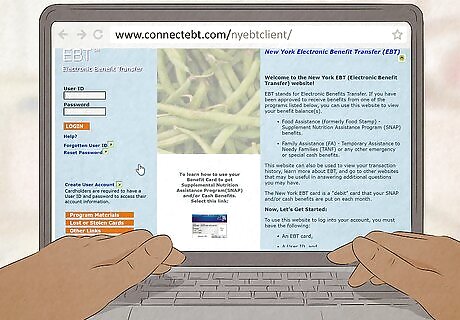
Log in to your state’s EBT portal. Use the same login credentials you’d normally use to check your EBT balance online. If you’ve never done this before, you may need to link your account to your SSN and sign up with a new username. If the portal does not allow you to log in or register, call the contact number listed on the state’s portal page. The specific office in charge of EBT benefits where you live differs from state to state. For example, In New York, it’s the Office of Temporary and Disability Assistance. In Nevada, it’s the Department of Health and Human Services. Do not worry if you are redirected to a page that isn’t a Social Services department.
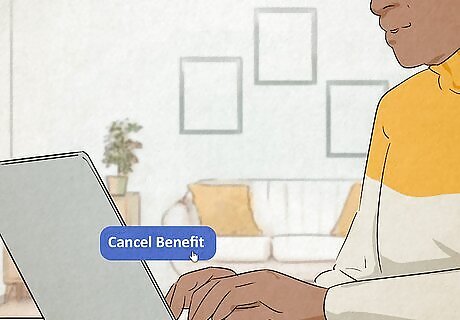
Cancel or update your benefits in your state-specific profile. Every state’s website is different, but if you’re able to cancel your benefits online, there should be an option to do so in your account profile. If you can’t find this option anywhere, go to the portal’s frequently asked questions page. This is a very common process, and there should be information on how to cancel your benefits on this page. Some states require you to explain why you want to cancel your benefits. Others don’t ask. If you are asked to provide a reason, don’t worry about going into specific detail if you’re uncomfortable doing so. States normally just request this information for data-collection reasons.
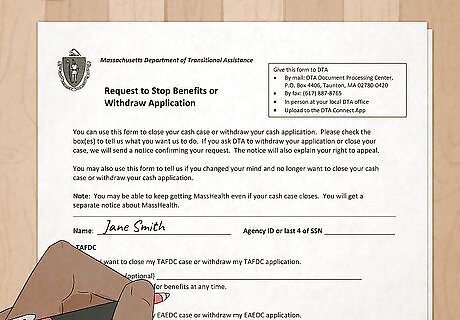
Mail a stop request or call your state office if you can’t do this online. Many states do not allow SNAP recipients to cancel their benefits online. If this is the case where you live, either call the number listed on the website or download the cancellation form and fill it out. Mail your cancellation application to whatever office manages EBT benefits where you live. If a mail-in application doesn’t explicitly tell you where to send the application, mail it to the address listed at the bottom of the website or on the department’s “Contact Us” page.
Determining if You Need to Cancel

Contact your state’s EBT office with any questions. If you don’t know who to ask about your eligibility, go to the federal directory at https://www.fns.usda.gov/snap/state-directory. Click your state and call the number that pops up. You’ll be able to ask the customer service representative any questions you have about your status, benefits, or need to cancel. For general inquiries about the SNAP program, call the federal government’s anonymous and toll free line at 1-800-221-5689.
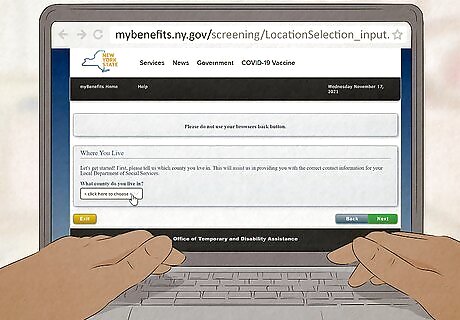
Read your state’s SNAP eligibility requirements online. Most states will outline their requirements on their website. There may even be an eligibility tool where you just enter your information and it tells you if you qualify. There are income restrictions, resource limitations, work requirements, and others, so read through the requirements carefully to see if you still qualify. While states have their own specific restrictions, you generally are eligible for SNAP benefits if: Your net income falls below the poverty line. Your gross monthly income in the household is at or below 130% of the poverty line. Your assets fall below $2,500 if you’re not elderly or have a disability, and nobody in your household has more than $3,750 in assets. You work, or are in a work training program, for at least 20 hours a week.
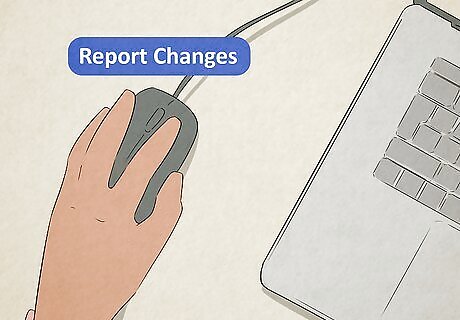
Report mandatory changes and just wait to see if you need to cancel. You are required to update your state when your situation changes. You don’t need to take any concrete steps to cancel if you update your state and you no longer qualify. They’ll stop sending you the benefits and let you know that you’re no longer eligible. It’s the EBT office’s job to determine if you qualify for benefits—not yours. So long as you follow the reporting procedure and inform your state of any changes in your circumstances, you’ve done all that you need to do.

Stop your benefits at any time for any reason if you’d like. You’re allowed to cancel benefits whenever you want. Even if you qualify, you can simply let the EBT office know that you don’t want to continue receiving benefits. You are also allowed to reapply for benefits whenever you’d like, so don’t worry about being cut off in the future or anything like that.

Keep reporting your benefits until you’ve officially canceled SNAP. If you’re in a situation where you’re required to update the state every month to let them know how much you’ve earned, you may assume that you can cancel your benefits just by not reporting. The state will stop your benefits eventually when they realize you’ve stopped checking in with them, but there’s a chance they’ll fine you. Update the state just to play it safe. In some states and situations, you may even be put in prison if you violate the terms of SNAP benefits by attempting to defraud them. How much trouble you get into for not reporting likely boils down to how diligent your state is about pursuing non-reporters.












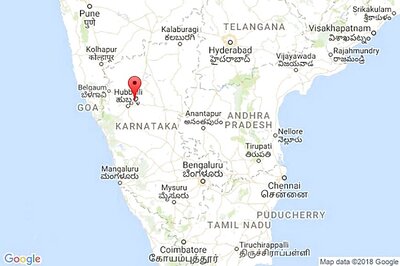






Comments
0 comment